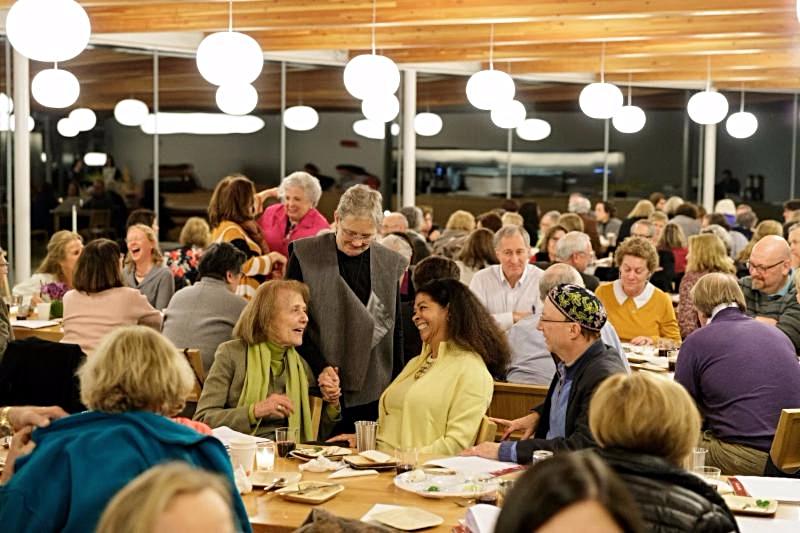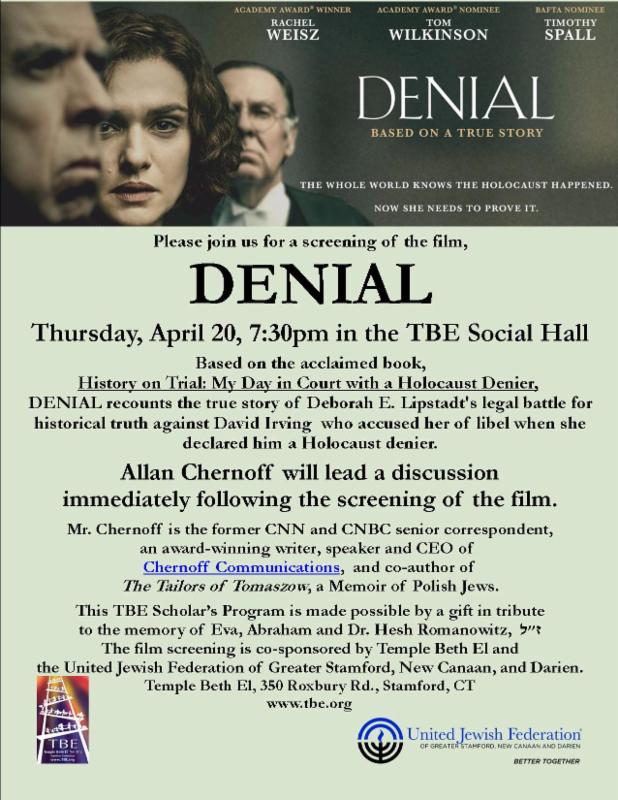Yesterday was the long-awaited Broadway opening of the play “Oslo.” I eagerly concur with the enthusiastic New York Times review published today. Contrary to what one might expect, given the title, the play is decidedly not a naïve, nostalgic ode to what might have been, but rather a balanced, sophisticated exploration of how haphazardly history is made, and how quickly it can be changed - both positively and negatively. It does not sugarcoat what transpired in the years following that hopeful handshake on the White House lawn, and the plodding, incremental process that could not keep pace with those who sought to sabotage it. Neither does it presume that all the fallout from the agreement was negative (for instance, the process yielded a stable peace with Jordan). It also highlights how little the US had to do with this agreement, as well as how possible such a deal could still be, if the spirit were willing.
At the same time, I’ve been feasting on “Fauda” on Netflix these past few weeks. This gripping Israeli TV series has feasted on superb reviews for its realistic, three dimensional portrayal of the Israeli Palestinian struggle through the eyes of a secret Israeli unit that infiltrates the infrastructure of West Bank terror groups.
Fauda means “chaos” in Arabic, a reflection of both the messiness of Palestinian life as well as the chaotic world of this undercover group.
On one level, the situation appears so intractable and hopeless, but on closer examination, we find that what unites the two sides of this conflict far exceeds what divides them. They are joined by their very human responses to the chaos around them, and in particular the desire to protect and avenge their loved ones. For protagonists on both sides, the prime motives are not nationalism and ideology, but love and retribution. And that love crosses boundaries - a passionate affair between a Palestinian and an Israeli lies at the core of the narrative.
At their AIPAC presentation, the creators spoke of how the show has been enthusiastically received on all sides of the divide, even among Hamas groups. That in itself is a quasi-miracle. Despite the violence that is so pervasive, the show offers a glimmer of hope that the level of understanding between the two sides can be raised as people recognize the common humanness of the Other.
If the people who negotiated at Oslo could have time-traveled 25 years into the future and seen “Fauda,” undoubtedly it would have shocked them, possibly to the point of giving up hope on their quixotic enterprise. But without that first, halting, clumsy step in Norway, where would be right now? It’s impossible to know, but it’s not hard to conceive that the situation would be even worse. No peace with Jordan, no functioning Palestinian police that cooperates with Israel, no infrastructure in place for a potential two-state solution - and no recognition of Israel’s right to exist, explicitly among the Palestinians and implicitly for other Arab states.
Oslo planted the seeds that are currently being reaped in fiery rage in “Fauda,” but seeds have a way of flying in the wind, only to land and bear fruit in more hospitable soil. We don’t know where and we don’t know when. But we do know that when there is peace some day, it will be because at long last, what was envisioned at Oslo, and what can be seen beneath the surface of “Fauda” was that this tiny spot of contested land can be a place of hope and human flourishing.
I highly recommend both shows - concurrently.
Are Jews the Happiest People on Earth?
Just in the nick of time, with depressing headlines piling up, the annual World Happiness Report has come out. And lo and behold, Israel is still perched at No. 11 among the 155 countries surveyed.
Just to place that in perspective, the U.S. checks in at No. 14, and those countries ahead of Israel include places encircled by water, like Australia, Iceland and New Zealand and an assortment of Scandinavian nations, where the closest they’ve come to war lately was Prince Hans Westergaard’s royal coup in Disney’s “Frozen.”
And then you have Israel: calamitous, terror-filled and polarized, with the meshuggenah bus drivers and rude bank clerks. That Israel. It’s also the country where the tomatoes are more flavorful, the falafel crispier, the sunsets more spectacular, the people more welcoming, the children more playful and where life is, simply, sweeter.
Dan Barber, a chef and writer, wrote about an experiment he ran on a mokum carrot, which he was able to grow outdoors in the middle of a cold February. When it was ripe, he ran something called a Brix test, which measures the sugar content. It came to 13.8. Barber compared it to an organic carrot purchased from a Whole Foods, presumably grown in a much less hostile environment. That carrot measured 0.0. on the same scale.
No sugar detectable.
Why such a dramatic difference? He explains that the mokum carrot was feverishly converting its starches to sugars because, in those hard freezes, it didn’t want ice crystallization.
Why?
Because if it gets ice crystallization, it dies.
“What you’re tasting is sweetness,” Barber stated. “But what the plant, the root vegetable is telling you, is that it doesn’t want to die.”
Maybe that’s why we make such a big tzimmis about tzimmis on Jewish holidays. The sweetness we’re tasting is life itself.
Have you ever noticed how the sweetest things are produced under the greatest duress? The State of Israel, 11th happiest country on earth, which has never known a single day of complete peace, is our proof.
I think Americans are becoming mokum-like too. We’re appreciating life more because we’ve peered into the abyss and seen how fragile freedom can be. We’ve experienced life at the limits - and when lived at the limits, life is simply sweeter. We’re taking our challenges and photosynthesizing them into love - and not simply your garden-variety love. We’re talking about “love is love is love is love is love!” Americans can’t sleepwalk through life anymore, and in a perverse way, it’s making us happier.
I’ve been captivated by a book that I picked up recently, a bestseller sharing Danish secrets to happy living. It’s called “The Little Book of Hygge,” by Meik Wiking, CEO of the Happiness Research Institute in Copenhagen. “Hygge,” incidentally, is pronounced “hoo-gah,” and is translated as comfort, togetherness and well-being.
Predictably, since this is Denmark, the path to hygge is paved with hot drinks, sweet pastries (they don’t call them “Danish” for nothing), board games, woolen socks, bike rides, photo albums and cozy fireplaces. Oh yes, and candles. Lots of candles.
When you take a closer look at the keys to Danish happiness, it’s easy to see why Israel scores so highly. Factor in the difference in climate (meaning, factor out the fireplaces) and there are lots of similarities.
Let’s start with the candles. Twenty-eight percent of Danes light at least one candle every day, an amazing number; but on Sabbaths and holidays at least, Israel might give Denmark a run for its money. The warmth generated by lit candles cannot really be measured in pounds of wax. As poet Marge Piercy describes in “Wellfleet Shabbat,”
The sweet beeswax candles flicker and sigh,
standing between the phlox and the roast chicken.
The wine shines its red lantern of joy.
One of my favorite Philip Roth passages is one of his earliest, from the short story “Conversion of the Jews,” where the boy Ozzie watches his mother lighting Shabbat candles:
When his mother lit the candles she would move her two arms slowly toward her, dragging them through the air.... And her eyes would get glassy with tears.... His mother was a round, tired, gray-haired penguin of a woman whose gray skin had begun to feel the tug of gravity and the weight of her own history. Even when she was dressed up she looked like a chosen person. But when she lit candles she looked like something better; like a woman who knew momentarily that God could do anything.
When Jews wish one another a happy Passover in a few days, they’ll say “Hag Sameyach,” but they could just as easily say “Hygge Samayach,” because, for all its obsessiveness, toil and gastric irritation, there is no hygge-er celebration on the Jewish calendar than Pesach.
Wiking’s Hygge wish list is a virtual seder checklist. Aside from candles (check), books (check) and cushions (check), he advises would-be hygge-ophiles to “think tactile” and focus less on how things look than how things feel. He notes, “Letting your fingers run across a wooden table, over a warm ceramic cup or over the hairs of the skin of a reindeer is distinctly different from being in contact with something made of steel, glass or plastic.”
Passover is less about what we eat than what we touch, particularly the rutted topography of matzah, the silky matzah covers, the cool silver wine cups (or hand-made ceramic ones) and the unmistakable texture of spoon slicing through a firm matzah ball.
Beyond the look, taste and feel, there is nothing that calls us home more than the mingling smells of ground chrain, hard-boiled egg, bubbling soup and fresh spring flowers.
While Jews complain endlessly about Passover, the secret sauce to our happiness is distinctly artisanal, pungent with horseradish, charred from slightly burnt shmurah matzah, sweet with carrots, softly illumined by candles and best served warm on a night different from all other nights.
And on that night, surprise of surprises, Jews just might be the happiest people on earth.
Holocaust Denial: the Fakest Fake News
“There are seven kinds of thieves. The first of them is the one who deceives people.” Tosefta Bava Kamma 7:8
The Holocaust, and in particular Holocaust Denial, is once again in the news, with Sean Spicer’s clumsy assertions regarding Assad, Hitler and gas.
At least Spicer apologized, for which he must be given credit. But here is why Sean Spicer’s fumbling, bumbling, pathetic comparison of Assad to Hitler matters, despite the apology. And here is why the Administration’s steadfast refusal to follow the Spicer route and issue a similar retraction for its infamous Judenrein Holocaust Day statement of last January, also matters.
Holocaust Denial is the canary in the coal mine of Fake News. This lie is the mother of all lies, in that it not only defies all standards of empirical science and meticulously documented history, but in doing so it also attempts to whitewash the greatest moral crime ever perpetrated.
When the Torah speaks of the command to remember the evil of Amalek, it is speaking to our generation specifically about keeping alive the memory of Holocaust.
But on a far deeper level, it is speaking about keeping alive the essence of all objective truth. The Holocaust was objectively, verifiably, utterly - and not alternatively - a fact. That fact is, unfortunately, one of the pillars of our epoch, a foundation upon which we are trying to reconstruct a civilized society. The dilution of this truth is the nullification of all truth.
Maimonides wrote, “A person is forbidden to act in a smooth-tongued and luring manner. He should not speak one thing outwardly and think otherwise in his heart. Rather, his inner self should be like the self which he shows to the world. What is in his heart should be the same as the words on his lips.” (Hilchot De’ot 2:6)
In Judaism, the Big Lie is a Big Sin, and there is no bigger lie than Holocaust Denial.
So join us this coming Thursday for our showing of the important new film, “Denial” and the talk by Holocaust author and former CNN reporter Alan Chenoff.
And also come the following week for the concluding session of our Jewish Ethics series. The topic? Lying.





